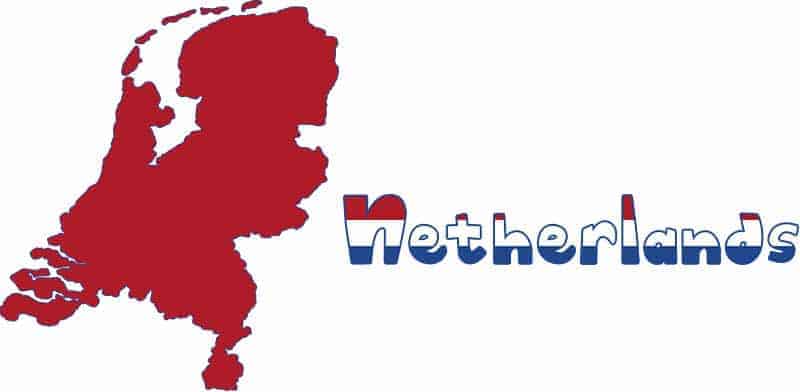Despite the Netherlands’ pro-privacy legislation and high regard for internet freedom, we recommend using a VPN when in-country.
“Why?”, you may ask.
Well, it’s because the Netherlands is a member of international surveillance alliances, in particular … Nine Eyes and Fourteen Eyes!
Have you heard of them? Most folks haven’t. But just know this … the Netherlands works alongside other member states to collect and share data.
If you care about your online privacy, it’s best to use a VPN when connecting to the internet.
Despite a reputation for being one of the most privacy-friendly countries in the world, here are the top 10 reasons why no Dutch internet user should go without a VPN.
Top 10 Reasons Why You Need a VPN While in the Netherlands
1. Censorship May Be on the Horizon in the Netherlands…
The Netherlands has one of the least-censored internets in existence, but that doesn’t mean it’s perfect.
Take the country’s treatment of the Pirate Bay. In 2017, the Dutch government ruled that ISPs must block access to the Pirate Bay or face massive fines.
Although freedom of speech is constitutionally guaranteed in the Netherlands, the ban is still in effect. This contradictory stance on censorship could be bad news for the internet in the future.
Prepare yourself before things get worse by getting a VPN. It’ll allow you to access the Pirate Bay, as well as any other sites that end up blacklisted as time goes on.
2. …And Mass Internet Surveillance May Not Be Far Behind
Just a few years ago, in 2017, Dutch citizens almost wound up living in a legally-enshrined dystopia.
A so-called “dragnet bill” would have allowed Dutch authorities to tap into internet cables and intercept internet traffic on a massive scale.
The law would allow the government to hack third-party apps, share surveillance data with other countries and even force companies to hand over encryption keys.
Thankfully, the law was voted down, but by a very slim margin: 48.8% of voters said no, while 47.3% approved of the law.
That’s a very narrow win for privacy — and a good sign that you should preemptively protect your data with a VPN.
3. The Netherlands Is a Member of Nine Eyes
In the game of mass surveillance, there’s no bigger name than Five Eyes. This shady group is comprised of the US, the UK, Canada, Australia and New Zealand, and it’s responsible for some of the most egregious privacy invasions in history.
But few people know about Nine Eyes, which is made up of the Five Eyes members plus Denmark, France, Norway and, yes, the Netherlands.
Though Dutch law technically prohibits international intelligence sharing, the Eyes groups don’t care. From monitoring innocent citizens to spying on heads of state, their activities indicate that they don’t care about legality, only surveillance.
But not even the Eyes have the technology to decrypt VPN traffic. Use one and your data will remain private no matter who obtains it.
4. The Dutch Government Has Tried to Circumvent EU Data Retention Laws

The EU takes internet privacy very seriously. As a result, it clashed with the Netherlands over the country’s invasive data retention law in 2015.
Under the Dutch law, ISPs were required to retain all browsing and location data for 12 months. This seemed to openly violate the EU Charter of Fundamental Rights, specifically the right to protection of personal data and the right to respect for private life.
Thankfully, the district court of the Hague agreed and struck down the Dutch law.
But the fact that such an open violation occurred to begin with is worrying for privacy advocates. It’s a sign that Dutch internet users need to encrypt their data with a VPN to protect themselves against future retention.
5. A VPN Keeps Your Data Private on Public WiFi
Public WiFi is often free, but you pay for it in ways other than money — specifically, your privacy.
Hotspot administrators can see everything you do on their networks, and so can any hackers who happen to be lurking nearby. Your web activity and private data are up for grabs on public WiFi, putting your identity at risk.
Using a VPN, however, will prevent network admins and hackers from monitoring you, intercepting your data and invading your privacy.
6. You Can Unlock New Streaming Content with a VPN
If you’re prone to binge-watching new shows on Netflix, you should know that streaming success isn’t guaranteed in other countries. Travelers to the Netherlands often log on only to find that their content libraries are much smaller than they’re used to.
Geo-restrictions on streaming sites are annoying, but they’re easily circumvented with a VPN. Just pick a server in another country to gain access to new content and bigger libraries.
7. VPNs Let You Browse Privately While at Work
Ever tried to access Facebook, YouTube, Netflix or Amazon while using your workplace’s WiFi network? If so, you probably ran into some restrictive network filters that prevented you from loading the sites you wanted.
Next time, use a VPN to keep your activity private and regain access to the entire internet, not just boss-approved websites.
8. Torrenting Is Much Safer When You Use a VPN
While the odds of getting in trouble for torrenting are low in the Netherlands, one stroke of bad luck could put you deeply in debt.
Copyright trolls use IP addresses to track down torrenters and hit them with huge fines. But if you change your IP address with a VPN, those trolls won’t be able to find you, and you can keep your torrents — and your money.
9. Sites Can’t Overcharge You Based on Your Location if You Use a VPN
Of course you want the lowest price for your plane tickets, hotel rooms and rental cars. But it may be impossible to get the lowest price while using your default IP address.
Companies alter their prices based on the location indicated by your IP address. But getting another country’s lower prices doesn’t require any travel — just change your location with a VPN and enjoy the savings.
10. A VPN Limits the Impact of Invasive Web Trackers
Tiny bits of code known as web trackers run in the background of nearly every site you visit. They keep a record of your activity, connect it to your IP address and sell the whole package to the highest bidder.
But you don’t need to be a cog in this twisted machine if you use a VPN to change your IP address regularly. Any data collected by trackers will be much less valuable without a consistent IP to tie it to.
Interesting Facts About the Internet in the Netherlands

- The Netherlands is among the 27 European Union (EU) countries with the broadest internet access. In fact, 98% of all Dutch households have an internet-accessible device. This is 11% greater than the average European state.
- Smartphones are the most prevalent device in the Netherlands (as is the case in most European countries) and are the primary means by which people access the internet.
- The internet is fast in the Netherlands, measuring an average of 82 Mbps, which is the sixth-fastest in the world.
Mass-Surveillance in the Netherlands (Video)
If you’re having any doubts about what you’ve just read, watch the below video for an awakening.



